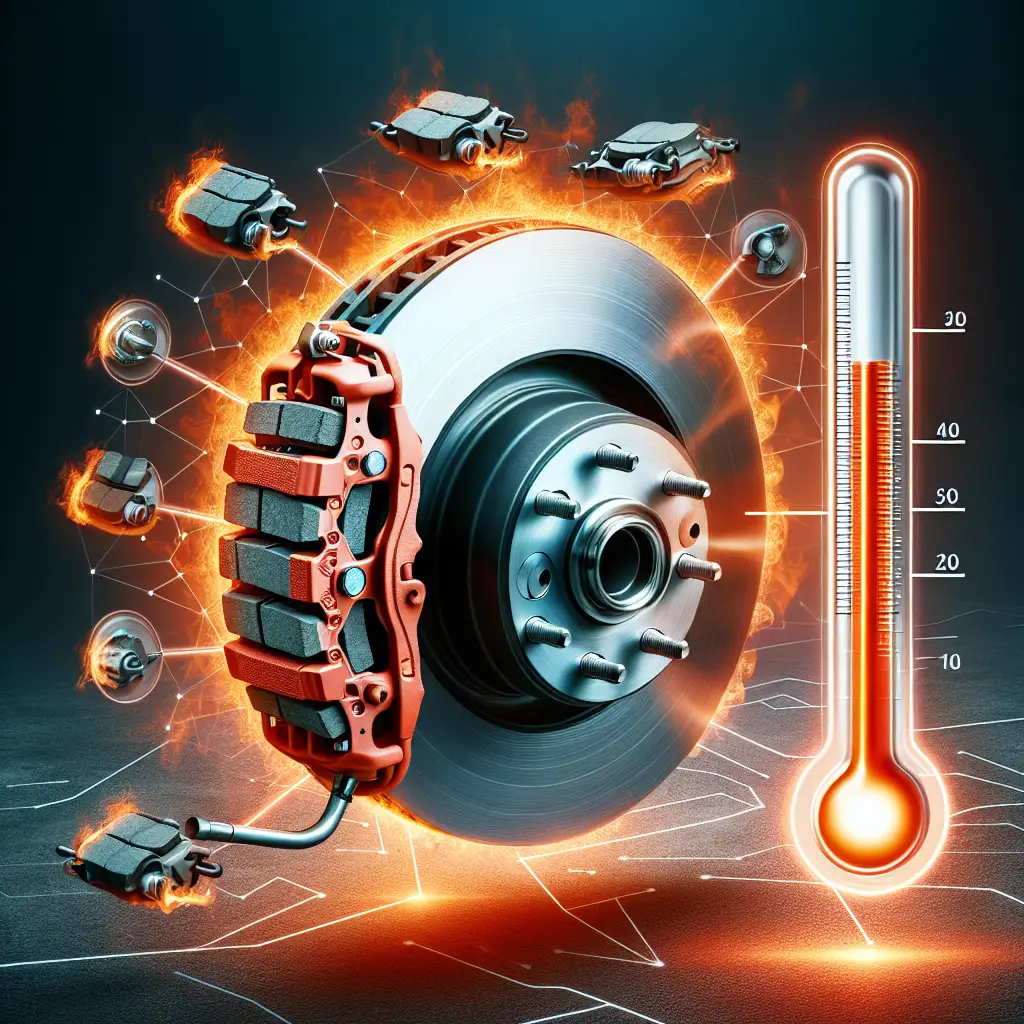How Hot Do Brake Calipers Get? Understanding the Heat Dynamics of Your Vehicle’s Brakes
When you’re cruising down the highway or navigating through busy city streets, your vehicle’s braking system is one of the unsung heroes that work tirelessly to ensure your safety. Among the various components that make up this critical system, brake calipers are central to the action. They experience extreme conditions every time you press on the brake pedal, but just how hot do these vital components get?
Brake calipers, as part of the disc braking system, play a pivotal role in decelerating your vehicle. They house the brake pads and pistons; their primary function is to create friction with the brake rotors, slowing down the wheel’s rotation and therefore the vehicle. This process generates a substantial amount of heat due to the friction involved. But to put a number on it, let’s delve deeper into the thermal universe of braking.
The Temperature Spectrum
During standard driving conditions, brake calipers can reach temperatures of approximately 200 to 300 degrees Fahrenheit. However, this is just the tip of the iceberg. In more demanding situations like heavy traffic, speeding, or aggressive driving, temperatures can soar. For instance, during spirited driving or on a racetrack, it’s not unusual for brake calipers to exceed 500 degrees Fahrenheit, a fact supported by research from the National Highway Traffic Safety Administration.
In extreme cases, such as continuous hard braking from high speeds, brake caliper temperatures can spike to around 1,000 degrees Fahrenheit or even higher. This intense heat can lead to what’s known as brake fade, where the braking components lose efficiency due to the high temperatures. The Car Care Council suggests that proper maintenance and understanding the limitations of your brake system are essential to safety and longevity.
The Heat Dissipation Dance
To maintain optimal function, brake calipers must dissipate the heat generated from friction. Made typically from metal such as cast iron or aluminum, they are designed to absorb and release heat rapidly. However, the rate at which they can dissipate this heat depends on several factors, including the material they are made of, the airflow around the brakes, the type of driving, and the brake fluid’s quality and boiling point.
Managing the Heat
For most daily driving situations, the standard brake systems that come factory-equipped with your vehicle are more than adequate to handle the heat. But it’s important to know that as the temperature rises, the viscosity of brake fluid can change, and the rate of wear on brake pads and rotors can increase. For performance cars, or if you’re planning to take your vehicle on a track day, consider upgrading to high-performance brake components that are designed to withstand higher temperatures.
Upgraded brake components can include higher-grade brake pads made for high-heat situations, rotors with better ventilation patterns, and brake fluids with higher boiling points. These upgrades can help maintain brake efficiency even under the severe stress of high-performance driving. The Society of Automotive Engineers offers detailed information on high-performance brake systems for those looking to learn more about these upgrades.
Know Your Brakes
Understanding how your brake system functions and the conditions it’s operating under can greatly influence your vehicle’s safety and the longevity of the brake components. For instance, a sudden change in how your brakes respond could be an early warning sign of overheating or wear. Likewise, noticing a burning smell after rigorous driving could indicate that your brakes have been working extra hard and may need a check-up.
Recognizing the Symptoms of Overheated Brakes
Signs of overheating brakes include:
– Reduced braking power or brake fade.
– A burning smell coming from the wheels.
– Smoking coming from the brakes after repeated hard braking.
– Squealing or grinding noises.
– The brake pedal feels softer than usual.
If you experience any of these symptoms, it’s advisable to let your brakes cool down and have them inspected by a professional to prevent any damage or potential safety issues.
Preventive Measures and Maintenance
Regular maintenance is key to ensuring your brake calipers and the entire braking system operate at peak efficiency. This includes periodic checks of the brake pads and rotors, changing brake fluid at the manufacturer-recommended intervals, and cleaning and lubricating the caliper components to prevent them from getting stuck due to heat and dirt accumulation.
Another aspect to consider is your driving habits. Adopting a smoother driving style, with less aggressive acceleration and braking, can greatly reduce the thermal stress on your brakes, extending their life and improving overall vehicle safety.
Conclusion
Brake calipers can endure extreme temperatures during vehicle operation, especially under high stress or performance driving conditions. It’s essential to understand just how critical the management of this heat is to maintain the effectiveness and reliability of your braking system.
If you are a car enthusiast or someone who demands a lot from your vehicle, it pays to be knowledgeable about the different brake components, their functions, and the signs of excessive wear or overheating. For the rest of us, regular maintenance and careful driving are the simplest ways to extend the life of our brakes and stay safe on the road. When in doubt, consult with a mechanic or refer to your car’s service manual.
Remember, your brakes are one of the most important safety features of your vehicle, and taking care of them is not just about avoiding costly repairs — it’s about ensuring your safety and the safety of those around you on the road. Keep them in check, and they’ll do the same for you.

